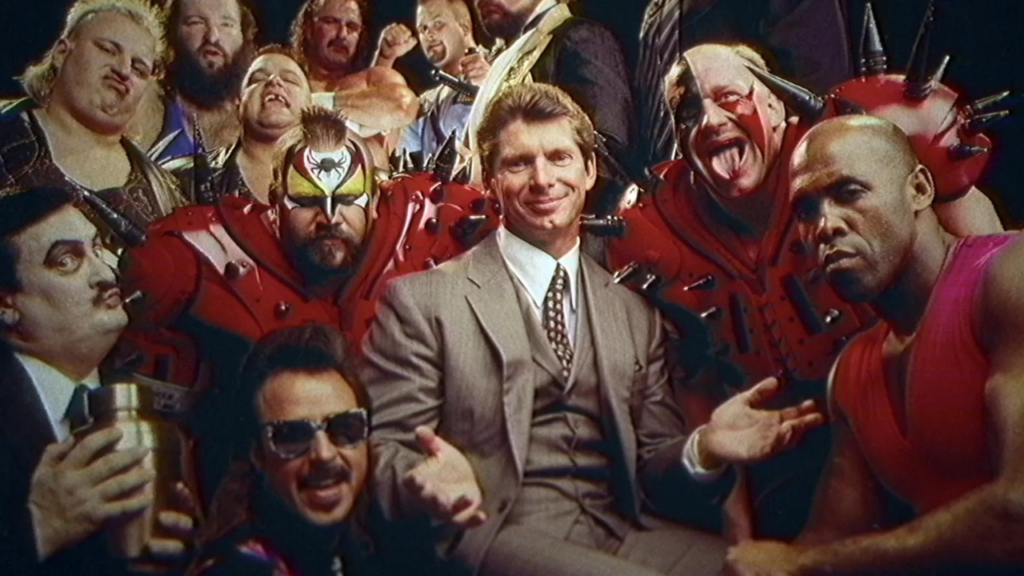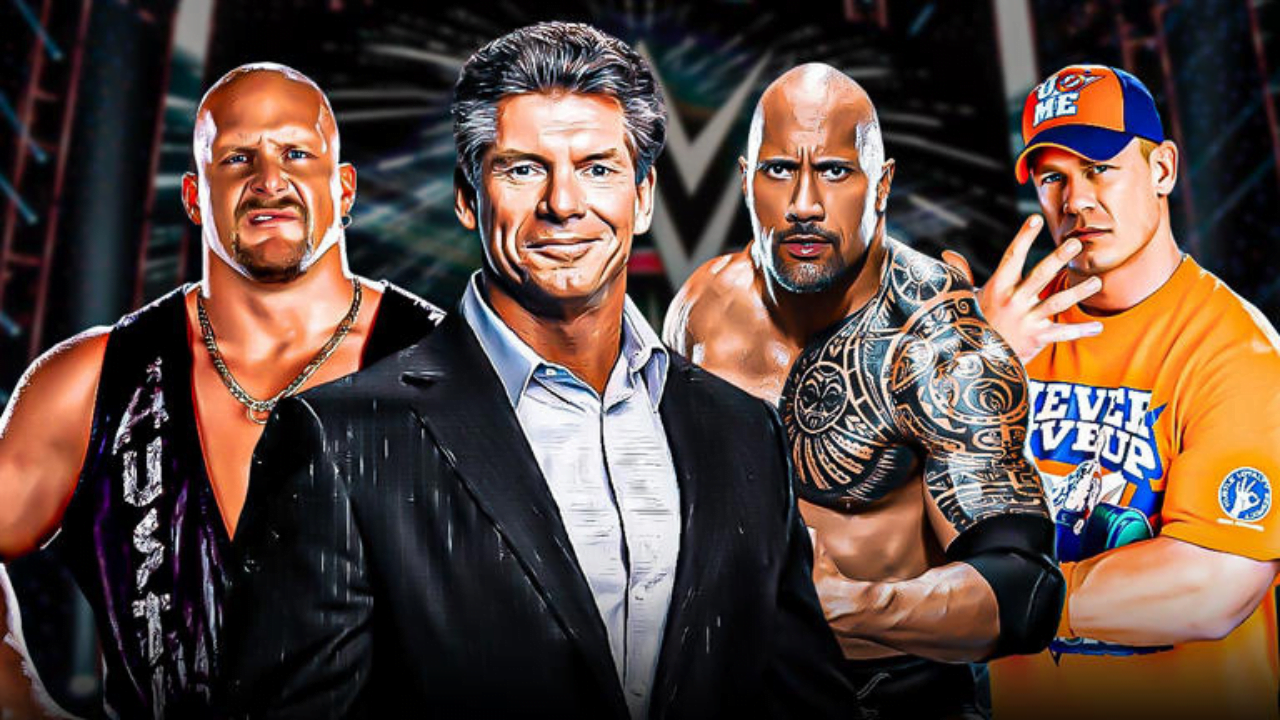Introduction:
Former WWE Chairman and CEO Vince McMahon is no stranger to controversy, but the upcoming Netflix docuseries, titled Mr McMahon, has triggered a firestorm that even he could not anticipate. With accusations moving around his tenure at WWE and his personal life, McMahon has come forward to passionately deny the portrayal painted by the filmmakers, calling it “deceptive” and “misleading.” As Netflix gears up to release the series, McMahon’s rebuttal raises questions about the narrative being pushed and the ethics of modern storytelling.

The Netflix Docuseries: What’s the Controversy?
Netflix’s docuseries, Mr. McMahon, has already garnered attention due to its explosive content, focusing on McMahon’s huge rise in the wrestling industry, as well as the controversies that have shadowed his career. However, McMahon has slammed the series, claiming that the filmmakers have blurred the lines between his on-screen persona, the ruthless “Mr. McMahon” character, and his real-life actions.

In a public statement, McMahon stated, “The series producers have chosen a predictable path of mixing my WWE character with my personal life, distorting the truth in the process. This docuseries falls far short of delivering an accurate and objective account of the life I have led.” His criticism suggests that the series leans heavily into the fictionalized version of himself rather than exploring the complexities of his role as WWE’s figurehead.
But is McMahon’s displeasure simply an attempt to shield himself from further scrutiny, or is the docuseries truly guilty of misleading viewers?
Accusations and Allegations: The Janel Grant Lawsuit
One of the most controversial aspects of the Mr. McMahon series is its focus on the lawsuit filed by former WWE employee Janel Grant, which alleges sexual abuse, misconduct, and human trafficking at the hands of McMahon. The lawsuit, which has been a hot topic in the media, accuses McMahon of taking advantage of his position to abuse Grant over a span of two years.
McMahon has strongly denied these allegations, asserting that the claims are baseless and stem from a consensual “affair.” In his statement, McMahon criticized the docuseries for amplifying these claims, asserting that the producers deliberately used selective editing techniques to further a deceptive narrative.
According to McMahon, “The allegations brought forth by Ms. Grant are completely false. We had a personal relationship, which she now seeks to twist into something malicious. The docuseries does a disservice to the truth by sensationalizing this story.”
However, Ann Callis, Grant’s attorney, has fiercely disputed McMahon’s characterization of the events. In a statement released to the media, Callis remarked, “McMahon’s defense is delusional at best and an outright lie at worst. The idea that this was an ‘affair’ is laughable. Janel Grant was a victim of abuse and manipulation, not a willing participant in a relationship.”
The Netflix series devotes significant airtime to these accusations, framing them as part of a broader pattern of misconduct during McMahon’s reign as WWE CEO. It remains to be seen how viewers will interpret the contrasting versions of this story.
Behind the Editing Curtain: Distortion or Storytelling?
A common refrain in McMahon’s critique of the Netflix series is the accusation of manipulative editing. He claims that the filmmakers used a variety of techniques—such as taking statements out of context and selective editing—to construct a narrative that fits their agenda. According to McMahon, the series consistently distorts the events of his life to present a more sensationalized version of his career and personal failings.
In his statement, McMahon emphasized, “I understand that dramatizing real-life events is part of storytelling, but when these tactics are used to manipulate the truth, it crosses a line. The editing tricks employed in Mr. McMahon are nothing short of deceptive, designed to present a version of events that aligns with the producers’ vision, not reality.”
This raises a larger question: how much creative license should documentary filmmakers take when telling real-life stories? At what point does “dramatic storytelling” become irresponsible journalism? For McMahon, the answer is clear. He believes that the series paints him in an unnecessarily negative light, leveraging the controversies in his life to attract more viewers, rather than sticking to the truth.
A Legacy Under Siege:
The release of Mr. McMahon comes at a time when McMahon’s legacy in professional wrestling is already under heavy scrutiny. After decades of ruling the WWE with an iron fist, McMahon stepped down as CEO amid multiple allegations of sexual misconduct and hush money payments. His departure sent shockwaves throughout the wrestling world, particularly given McMahon’s reputation as one of the most powerful and influential figures in sports entertainment.
However, McMahon’s critics argue that his exit from WWE was long overdue. They claim that his leadership style fostered a toxic workplace environment, where exploitation and intimidation were common tactics. The docuseries appears to lean into this narrative, portraying McMahon as a man whose insatiable drive for power came at a great personal and professional cost.
While McMahon continues to defend his legacy, the upcoming Netflix series may cement his portrayal as a divisive figure. Regardless of McMahon’s protests, Mr. McMahon is likely to attract significant viewership, particularly from wrestling fans eager to learn more about the man behind the brand.
McMahon’s Response: Damage Control or Denial?
McMahon’s aggressive response to the docuseries could be viewed through two lenses. On the one hand, his detailed rebuttal may reflect genuine frustration with how the series portrays him. After all, McMahon participated in the production, and it’s understandable that he would be upset if he felt his input was disregarded or twisted for the sake of drama.
On the other hand, some observers believe that McMahon’s denials are part of a broader strategy to protect his reputation. With several lawsuits and allegations still looming, McMahon’s critics argue that his public statements are an attempt to shift the narrative in his favor before the series tarnishes his image further.
Regardless of the motivation, McMahon’s statements serve as a reminder of the power of media and storytelling. As Netflix prepares to release Mr. McMahon, it is clear that the battle over McMahon’s legacy is far from over.
Conclusion:
The upcoming Mr. McMahon docuseries promises to shed light on one of the most controversial figures in the history of professional wrestling. As viewers, we must remain critical of both the series and the responses it provokes. Vince McMahon’s allegations of deception and sensationalism offer a stark reminder that even documentaries are not immune to bias. As with any story, the truth likely lies somewhere in the middle.

